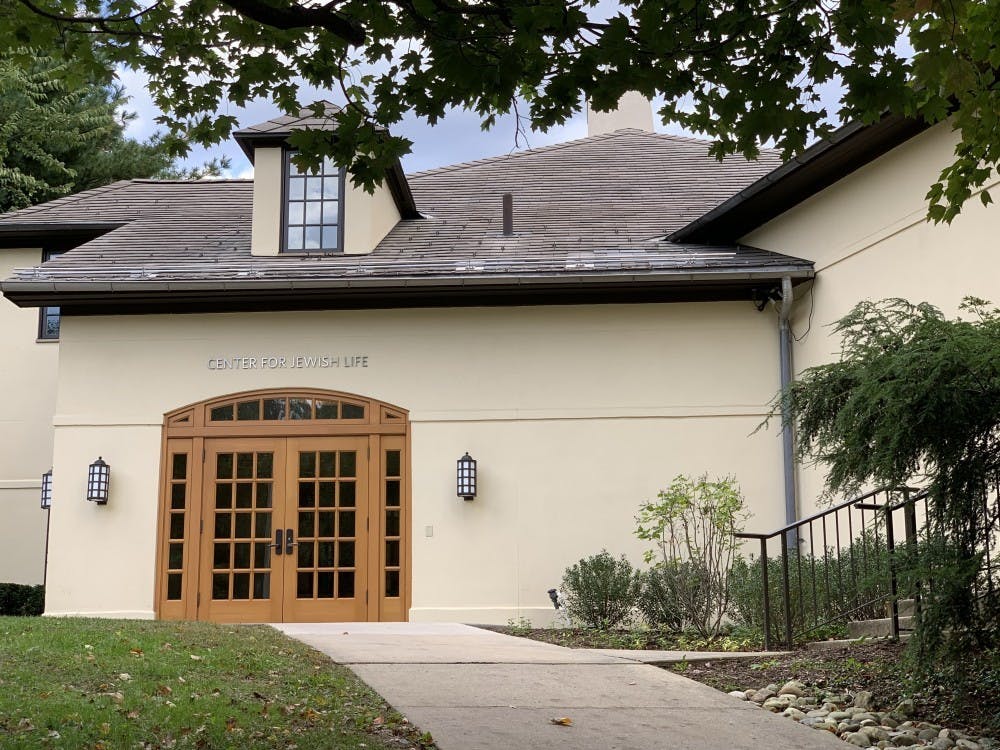The following is a guest contribution and reflects the author’s views alone. For information on how to submit an article to the Opinion Section, click here.
This coming Friday night, April 28, Princeton’s Center for Jewish Life (CJL) will host “Israel Shabbat.” This highly divisive event was last hosted in 2019, forcing many liberal Zionist, non-, and anti-Zionist Jewish students who then felt alienated from their religious communal space to host an alternative Sabbath meal. Dozens of students also signed an open letter condemning the event. This scenario is repeating itself again this year, with students who do not feel comfortable celebrating Israeli nationalism over Shabbat dinner relegated to another space for the evening. Leftist Jews on campus, as well as those who identify as liberal Zionists, advocated against the CJL hosting Israel Shabbat on the grounds that it is unnecessarily divisive and alienating. Once again, these same parties are asked to step aside as the CJL panders to its right-wing students and donors. The CJL is superimposing a celebration of an apartheid state, in which Jews possess elevated legal status compared to that of Palestinians, and onto what should be a communal religious observance.
Though Israel’s apologists will claim that this is a celebration of culture, not politics, the question of whether to spend one’s Friday night celebrating what multiple human rights experts, the Palestinian people, and an increasing share of the American Jewish population consider to be an apartheid state is deeply political.
The CJL’s own policies claim that the organization will not “promote racism or hatred of any kind.” While they believe celebrating Israel does not promote racism or hatred — for AJP and others — in the context of the nation-state law, increased human rights violations, and the rise to power and prominence of ultra-right wing government officials (many of whom, such as Itamar Ben-Gvir and Bezalel Smotrich, have credibly been called fascists), the choice to host events of this kind does cross the line. An unprecedented number of Israelis are in the streets protesting the threats this government poses to democracy, civil rights, and the rule of law not only for Palestinians, but for Israeli Jews themselves.
These facts make it harder and harder for the CJL to state that Israel Shabbat does not cross the line into promoting racism or hatred. The organization has repeatedly crossed this line recently, hosting far-right activist Dr. Ronen Shoval and allowing The Tory, a conservative student publication that routinely attacks Palestinian activism on campus, to host events in the building.
Additionally, in the wake of its accusations of antisemitism against pro-Palestinian campus speakers and attacks against attempts at pro-Palestinian student organizing, this event marks just the latest example of the CJL taking right-wing positions on political debates that sharply divide Princeton’s Jewish community. And yet, somehow, the CJL often maintains a reputation as a purely apolitical space for Jewish life and gathering. While the space undeniably serves as such for many students, it is long past time the student body collectively began to recognize the other clear purpose of this institution: advancing right-wing Zionist politics on Princeton’s campus.
Examples of the CJL behaving as a political actor with a distinctly Zionist agenda abound. The CJL hosts “Israel Fellows,” Israeli army veterans who work on college campuses across North America. According to the website of the Jewish Agency for Israel, which provides the fellows, their goal is to resist “anti-Israel sentiment and activism” in the context of “an alarming rise in anti-Israel and anti-Semitic incidents in recent years.” Not only do they conflate antisemitism and anti-Zionism, but the fellows are also given a platform to spread this political message by teaching classes on Israel through the Jewish Learning Fellowships at the CJL. The very fact that these fellows work at the University also allows them to use Princeton’s institutional influence to spread Zionist talking points.
Hillel International, an organization of Jewish campus organizations that the CJL belongs to and partners with in order to bring in Israel Fellows, has a rule that it will not host speakers who “support boycott of, divestment from, or sanctions against the State of Israel,” a position that is both flagrantly anti-free speech as well as blatantly political in its goal to shut down any discussion of effective economic action against Israeli apartheid. There is also widespread documentation of Hillel International’s allyship with reactionary right-wing groups and causes.
Both the CJL’s affiliation with Hillel International and its own independent actions contribute to its political character, but that is not to say that there is no space for political organizations at Princeton. Plenty of student clubs are open about their political affiliations, and even groups that receive University funding such as the James Madison Program (JMP) or the Gender and Sexuality Resource Center (GSRC) make no serious effort to hide their politics, whether conservative or liberal. These organizations’ political goals and leanings are transparent, and students are able to understand them clearly and react accordingly. But the CJL has managed to operate outside of this paradigm. Non-, anti-, and post-Zionist Jews on this campus are left wrestling with the fact that we ostensibly have a space for Jewish life, but which is effectively an in-house dispensary of Zionist propaganda.
A collective shift of campus consciousness toward a re-understanding of the CJL and its goals would serve us all. If we acknowledge that the CJL is not a neutral space for Jewish life, but rather one with an obvious Zionist agenda, we can stop being shocked by each instance of the CJL’s political activism and more effectively resist it. More importantly, we could begin questioning why the University is so insistent in supporting the CJL in its current form, despite the fact that it only caters to Princeton’s Zionist community, rather than its entire Jewish one.
We hope progressive students and allies — Jewish and non-Jewish — will join us this Friday night to celebrate “Not Our Shabbat” together.
The Alliance of Jewish Progressives

This op-ed, for which Emanuelle Sippy ’25 and Ben Gelman ’23 serve as official signatories, was written collaboratively by the members of the Alliance of Jewish Progressives. Sippy can be reached at emanuelle@princeton.edu and Gelman at bgelman@princeton.edu.








